HOUSEPLANTS > ORCHIDS > WATERING
IN THIS GUIDE
ORCHID GUIDES

DendrobiumFeedingPhalaenopsisRebloomingVarietiesWatering
Orchids are telling and pop for develop indoors .
The most popular are moth orchids , also known as Phalaenopsis , which are epiphytic plant from tropical climate that make wonderful theatre plant and cope well in centrally het up spaces.1Research guide : Phalaenopsis ( moth orchid ) . ( n.d . ) . New York Botanical Gardens . Retrieved March 29 , 2023 , fromhttps://libguides.nybg.org/phalaenopsis
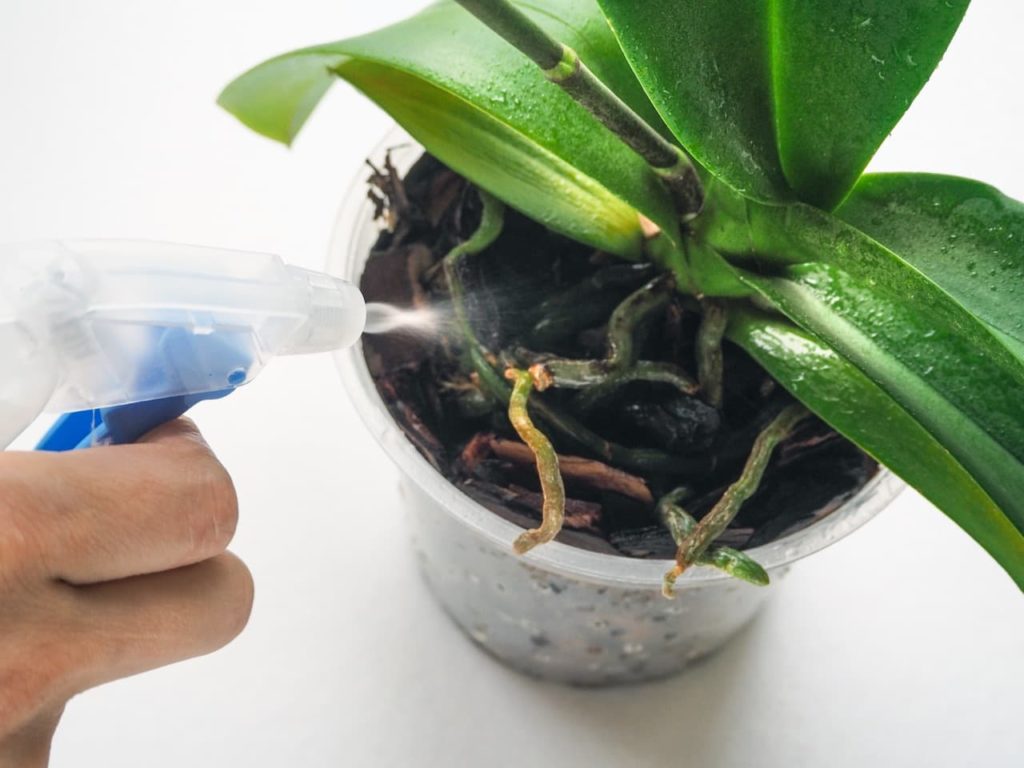
Though they can grow very well in our homes , manage for orchids like these right is of the essence and , when it descend to orchid care , tearing is one of the most important thing of all .
“ If there ’s one broker that can make or break your orchid growing experience , it ’s water system , ” saysDaniel Toor , the Owner of The Dark Orchid .
The key fruit to winner with any orchidaceous plant is keeping the roots neither too wet nor too dry , but there are other things to consider .

Here are 10 tips to facilitate you make certain that you water moth orchids correctly :
You ’ll find more particular on each of these points ( admit commentary from expert orchid growers ) below .
1) Water Weekly In The Growing Season
When growing moth orchidaceous plant , the amount that you water will variegate count on a number of dissimilar factors .
However , as a general normal of thumb , you’re able to expect to water your moth orchid once a hebdomad through most of the year and a little less during the insensate months .
“ Water and feed once a hebdomad in the summer but every 10 days in the wintertime , assure the plant is removed to the kitchen draining control board so that all excess water will run away , ” saysMalcolm Moodiefrom the Solihull & District Orchid Society .
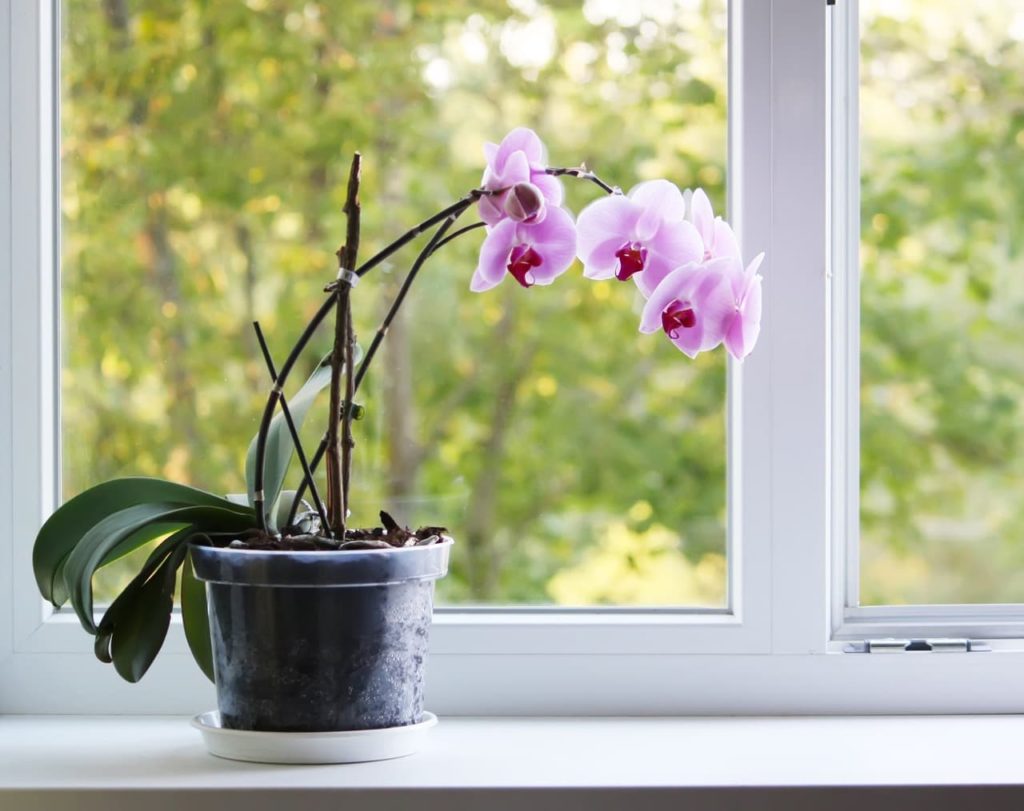
2) Reduce Watering In Winter
In the winter months , you are potential to have to water your orchid a fiddling less frequently , but you will still have to keep an eye on your orchid to check that that the beginning are not let to dry out out entirely .
Remember , the amount of water required will vary moderately based on environmental factors like unaccented stratum and temperatures .
3) Maintain Moist (But Not Waterlogged!) Conditions
Your goal when originate moth orchid is to keep the roots happy and healthy .
The roots do need memory access to moisture consistently , but they can not tolerate getting entirely dried out , nor can they handle being waterlogged either .
As an orchid parent , your goal is to ensure that you keep the stem in the ‘ Aster linosyris zone ’ – just right-hand .
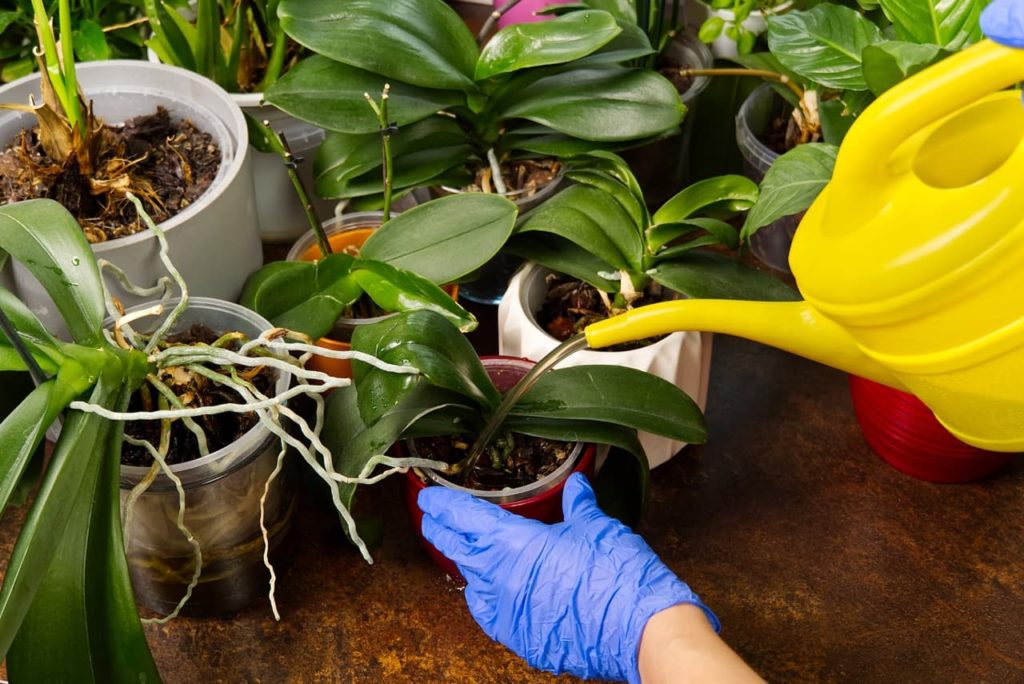
4) Opt For A Clear Container
get the tearing right is the most intriguing thing about growing most houseplants and moth orchids are , of line , no exception .
Working out when to water involves examining your orchid .
“ The big problem tends to be with people overwatering orchid in the base , ” saysSara Rittershausenfrom Burnham Nurseries Ltd.

“ lachrymation too often means that the roots do n’t dry out enough and then they can rot and not function , leading to the plant dehydrating .
“ Always curb the pot once a workweek but only water when teetotal until you get to do it how often your orchid needs to be watered . ”
Choosing a open container for your moth orchidaceous plant can be a good estimate because it can help you to see when the compost is dampish and when it dry out out through its colour .
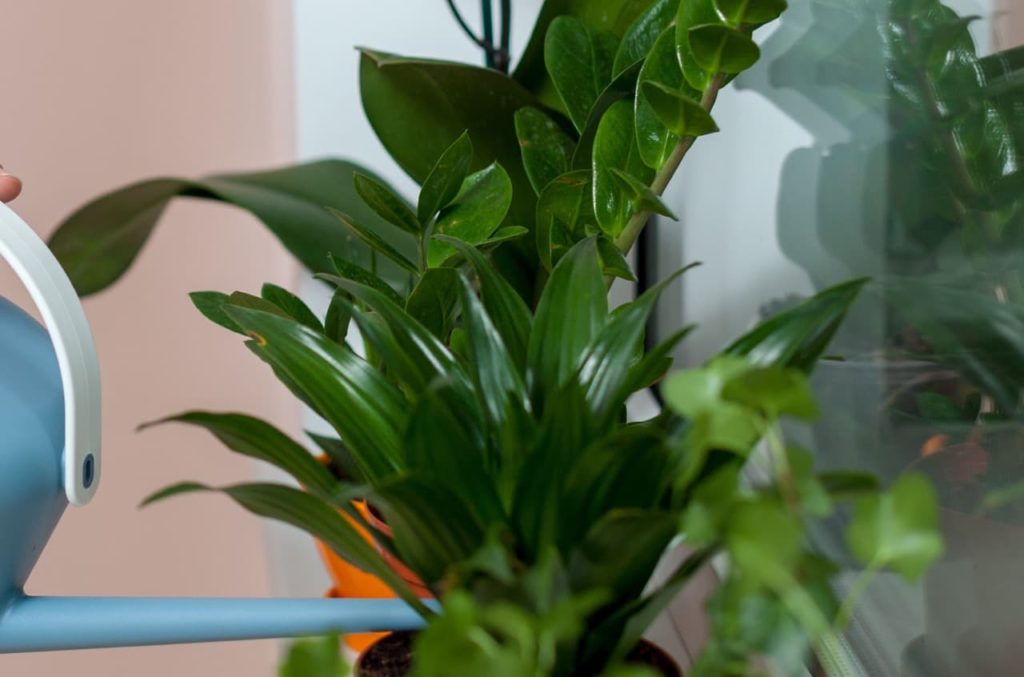
This can assist with keeping the moisture levels just decent for the orchid roots .
“ Clear pots make the process of know when to water far easier , ” shares Horticultural Consultant Colin Skelly .
“ There is a distinct direct contrast between moist and dry compost , put up a visual marker which is particularly important in winter to avoid overwatering . ”
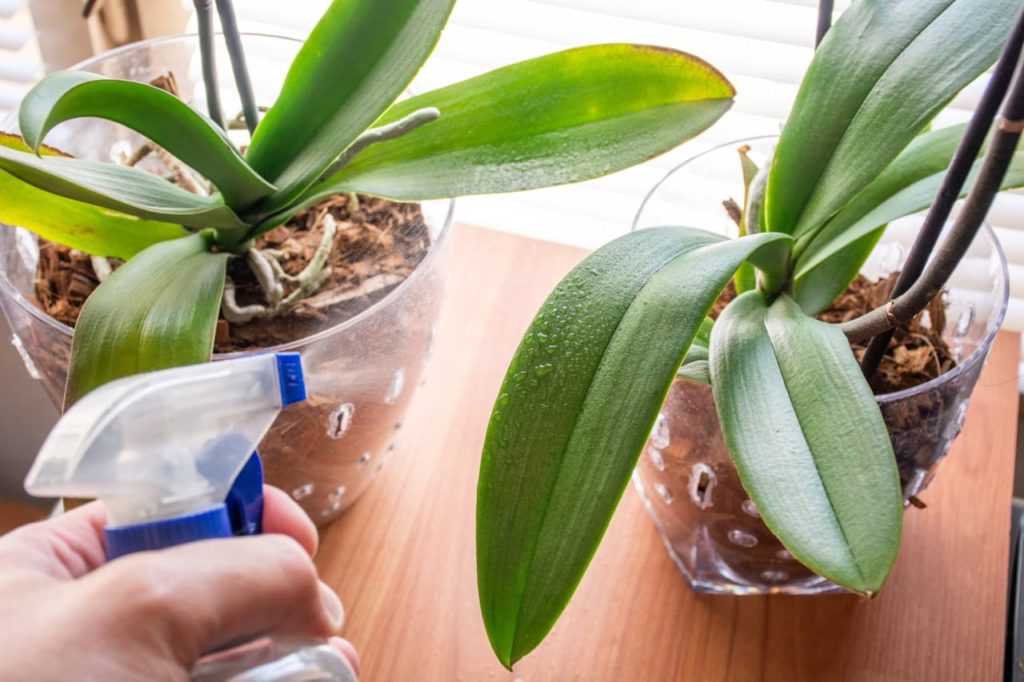
Some roots can also photosynthesise , which is another understanding to choose a clear receptacle .
5) Use Rainwater
Chlorinated tap water is not good for orchids , so it is best wherever possible to use rain to irrigate your moth orchids .
“ try on to expend rainwater , if possible , especially in hard water areas , ” says Malcolm .
If this is not possible , then it is best to roil dab water before you apply it .
6) Use Water At Room Temperature
It is also authoritative not to practice water that is too frigid to irrigate your delicate orchid .
“ bestow your rain into the sign of the zodiac 24 hours before use to ensure the water system is at the same temperature as the plant , ” sum up Malcom .
verify that the water you use is at room temperature before you water .
7) Water From Above Or Below
you could irrigate moth orchid from above , making sure that you discard any body of water that cease up in the saucer or flora tray below the container .
Alternatively , you could fill a trough or sink and place your orchidaceous plant in it for a flow of time , before return it to its usual position .
8) Do Not Wet The Leaves Or The Crown
However , whether water from above or below , verify that you do not get pee slush onto the leave of absence or the crown , as this can increase the likelihood of a turn of issues , include fungous problem .
ensure you get the water to the roots where it is needed .
9) Don’t Feed Every Time You Water
Orchids require feeding for serious termination and specialist orchidaceous plant feeds are often given when watering .
However , if you bung every fourth dimension you irrigate , this can lead to a build - up of salt that can be detrimental to your orchid .
So , make certain that every fourth time you water , you do so without feed so that you flush salts through .
Remember , feeding should also only be in summer and you do not need to fee much , if at all , over the wintertime months .
10) Only Mist The Foliage And Aerial Roots
In raging weather , mature moth orchids may need to be misted day by day to increase humidness where this may be low-down .
“ Do not irrigate too often and mist regularly to create humidity , ” says Sara .
When befog , check that that you cloud the foliation and aerial roots and avoid cloud the flowers , as this can have spying or patchiness to get on the petals of the blooms .